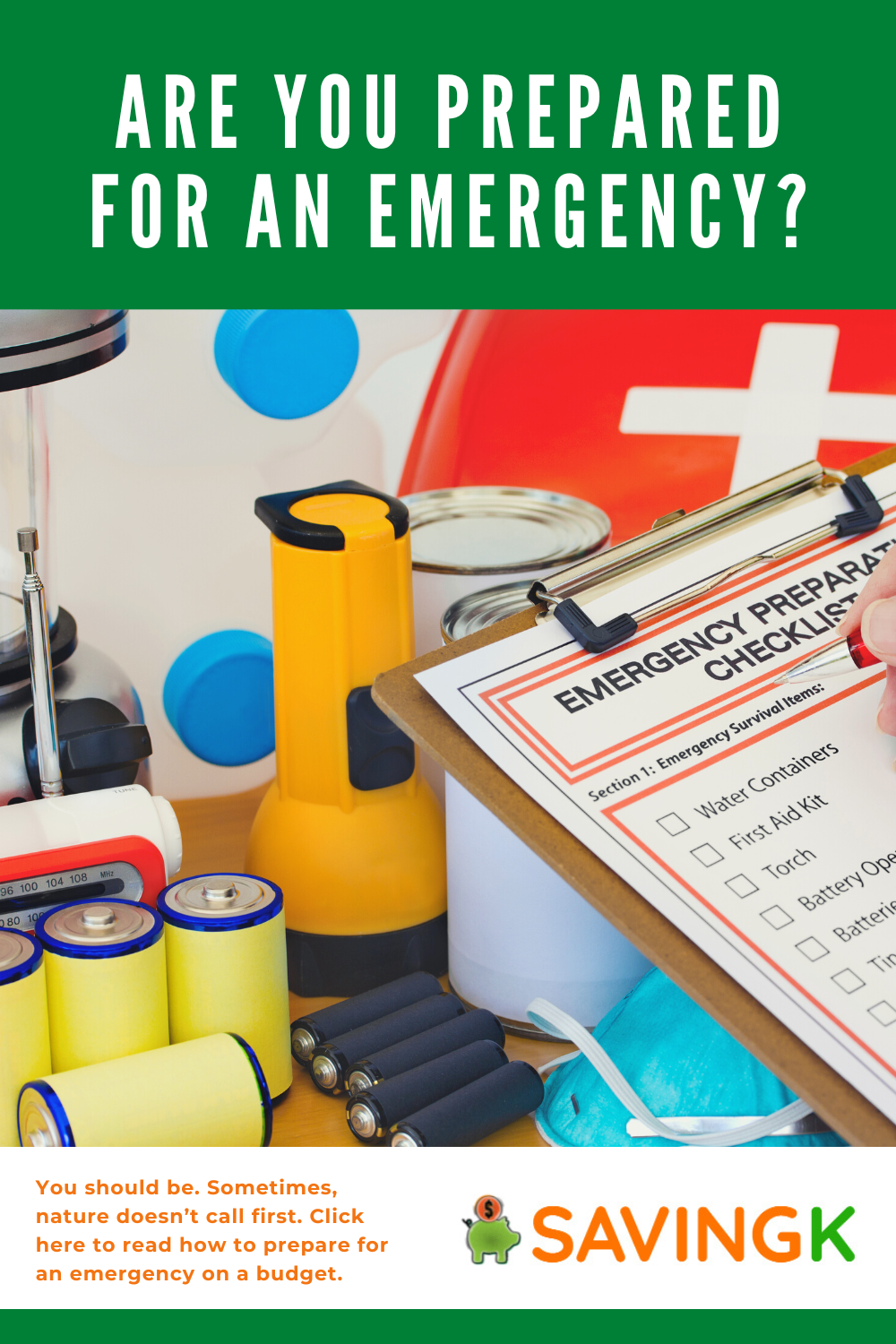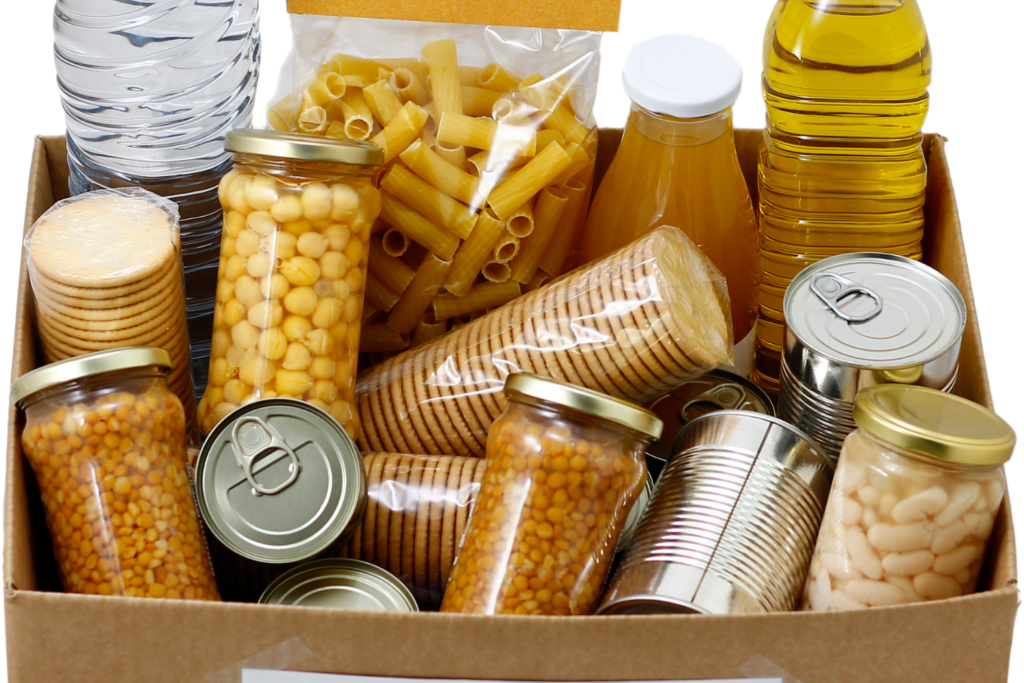
No one likes to think about emergencies, but they can happen at any time. That’s why it’s important to be prepared, both mentally and financially. Let’s go over how to prepare for an emergency on the cheap.
Contents
- Tips To Prepare For An Emergency On A Budget
- Additional Tips To Prepare For An Emergency
- Preparing For An Emergency FAQs
- 1. What are some common emergency scenarios?
- 2. How much money should I set aside for my emergency fund?
- 3. What food and water supplies should I have on hand?
- 4. How do I know if my insurance policies will cover me in an emergency?
- 5. What should I do if I have to evacuate my home?
- 6. How can I stay informed about potential emergencies?
- Prepare For An Emergency Conclusion
Tips To Prepare For An Emergency On A Budget
Here are a few tips on how to do that without breaking the bank:
1. Make a list of potential emergency scenarios.
This will help you focus your preparations and make sure you don’t forget anything important.
2. Create a budget for your emergency fund.
Decide how much you can realistically save each month and set up a dedicated emergency account for it.
3. Build up your food and water supplies.
Keep non-perishable food items on hand as well as a water filter or purification tablets in case of a water emergency.
4. Have cash on hand.
In the event of a power outage or other disaster, ATMs may not be working. It’s always good to have some cash on hand for essentials like food and gas.
5. Know your insurance coverage.
Make sure you understand what your health, homeowners, and auto insurance policies cover in the event of an emergency.
6. Have a plan for your pets.
If you have to evacuate, make sure you have a plan for your pets as well. This could include things like where you’ll go, who will care for them, and what supplies you’ll need.
7. Stay informed.
Be sure to keep up with the news and weather reports so you can be aware of potential emergencies in your area.
Additional Tips To Prepare For An Emergency
You can also visit a couple of websites to gather your lists. Redcross.org and Ready.gov are both good sites, you can also search for similar sites that have more detailed and lifestyle-specific lists. Now you have your lists you need to start gathering these items to prepare for an emergency, and you don’t need to spend a ton of money doing it. Don’t worry you have options, you are not limited to expensive camping/survival catalogs, websites, or major department stores.
The most important items on your list are food and water. You can easily and cheaply stock up your cupboards. When you are making your grocery list for the week add a couple of items to it. Make sure to check the expiration dates; most canned goods are good for two years. When you get home put those extra items in your designated storage area and do not forget to rotate. Do this every week or every time you go to the grocery store and in no time you will have a supply of food built up.
Gardening will also provide you with food cheaply. You don’t have to have a huge piece of land or yard to grow your own garden. You can start a container garden on your patio or balcony. Surf the web and you will find plenty of cheap container gardening ideas with all the how-tos. Once you have your garden growing you will want to do research on canning those vegetables. Yes canning, is the same thing our grandmothers and mothers use to do. It isn’t that complex and relatively inexpensive. Canning supplies as everything else can be gathered from friends and cheaply purchased. Again, check out the internet on canning how-tos.
The next thing you will want to do is go through your home and look for items on your list. You may already have many items and just don’t realize it; go through your drawers, cabinets, garages, and basements you will be surprised at what you already have. What you don’t find at home you can ask friends and neighbors for. It may surprise you how willing they are to part with duplicate items. Now, go back through your list and see what is left. Everything else you will have to purchase. Again, do not panic; you can purchase the rest of your needed items cheaper than you think. Take your lists and head to your local dollar store, thrift store, and yard sales.
In our area, Dollar General is now carrying outside oil lamps (metal lamps & can be used indoors) for five dollars and the oil itself is five dollars for fifty-eight ounces. Not bad considering local department stores are charging upwards of twenty dollars for the same lamp and upwards of ten dollars for the same oil. If you go to the automotive or home improvement section you can find duct tape, bungee cords, rope, flashlights, ice scrapers, tarps, plastic sheeting, gas cans, gloves, dust masks, etc. all of which are below the normal department store cost. No, it’s not going to be a name brand but it will do the job.
In the first aid aisle, you will find most of what you need to make your first aid kits for your home, car, and bug-out bags for again half the cost. Personal hygiene, toiletries, and disposable paper items are also cheaper and usually sold in bigger quantities for example twenty-four rolls of two-ply toilet tissue for six bucks, or if you purchase four six-packs of toilet tissue for a buck ten each you save even more.
In the home and garden section, you can find small tabletop grills for three to five dollars. These can be used in a pinch to cook outside whether at home or during an evacuation. You can also find coolers (large & small), thermos bottles, metal kabob skewers, and depending on what your local store carries you may even find a Coleman propane-type stove.
Thrift stores and yard sales are great places to find items as well. You can find things such as extra blankets, boots, clothing, cookware, food storage containers, utensils, thermos bottles, portable potties, tents, camping gear, and anything else you could not find at the dollar stores.
Again, you do not have to run out and buy everything at once. Make a weekly or bi-weekly trip and pick up a couple of things; continue this until you have your supply cabinet stocked. Now relax and pat yourself on the back; you and your family are prepared for an emergency and you did it without breaking the bank.
Preparing For An Emergency FAQs
Here are some frequently asked questions about preparing for an emergency.
1. What are some common emergency scenarios?
Some common emergency scenarios include severe weather, fires, power outages, and accidents.
2. How much money should I set aside for my emergency fund?
The amount of money you set aside will depend on your individual circumstances. A good rule of thumb is to have enough saved to cover three to six months of living expenses.
3. What food and water supplies should I have on hand?
You should have enough non-perishable food and water to last each person in your household for three days. This includes things like canned food, dry goods, and water bottles.
4. How do I know if my insurance policies will cover me in an emergency?
Each insurance policy is different, so it’s important to read the fine print and understand what is and isn’t covered. You can also contact your insurance company to ask specific questions about your coverage.
5. What should I do if I have to evacuate my home?
If you have to evacuate, make sure you have a plan for your pets as well. This could include things like where you’ll go, who will care for them, and what supplies you’ll need. You should also pack an emergency kit with essential items like food, water, and medicine.
6. How can I stay informed about potential emergencies?
Be sure to keep up with the news and weather reports so you can be aware of potential emergencies in your area. You can also sign up for alerts from local authorities or the National Weather Service.
Prepare For An Emergency Conclusion
By following the tips in this article, you can be better prepared for an emergency. This includes making a list of potential scenarios, creating a budget for your emergency fund, stocking up on supplies, and staying informed about potential threats in your area. By being prepared, you can help reduce the stress and anxiety that comes with an unexpected event.





